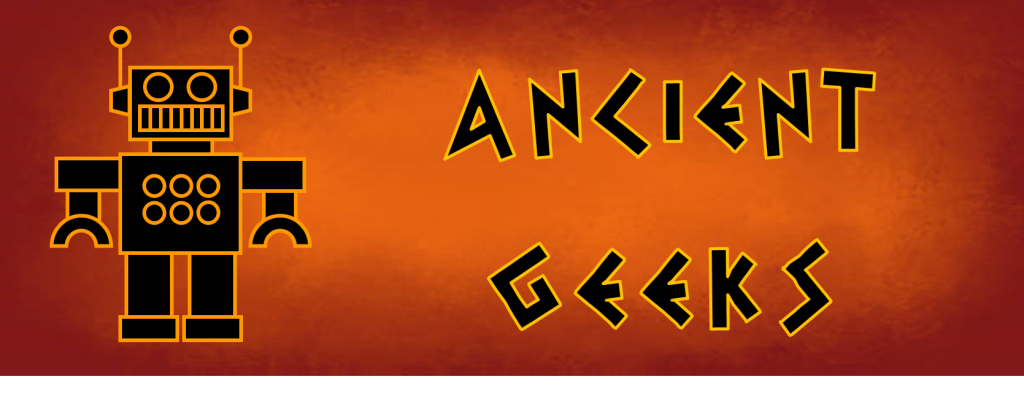AG Monday
This week: Dungeons and Dragons and RPGs.

Dragons and beholders and owlbears, oh my! During our geek formative years, we both discovered Dungeons & Dragons, and were instantly hooked. A sandbox where we have freedom to create our own heroic fantasy characters and stories, and we get to roll really cool-looking dice as well? Sign us up! In this episode, we cover the early years of D&D, from the white box edition through the first edition of Advanced Dungeons & Dragons. Grab your character sheet and painted miniature and join us at the gaming table!
Ancient Geeks is a podcast about two geeks of a certain age re-visiting their youth. We were there when things like science fiction, fantasy, Tolkien, Star Trek, Star Wars, D&D, Marvel and DC comics, Doctor Who, and many, many other threads of modern geek culture were still on the fringes of culture. We were geeks before it was chic!
Please rate and review us on your favorite podcatcher–it is really a help! And please subscribe!
For feedback, contact so**************@***il.com. You can also find us on Facebook, Reddit, and Bluesky. And if you like what you hear, please tell a friend!
If I may post off topic, I know nothing about D&D beyond what I’ve seen on TV, and return to a theme from last week, I found a big Force (The Force?) type problem in something I’m working on.
Namely, prophecy.
Assume Cassandra as portrayed in the Greek myths can see the future accurately. This creates a lot of problems, seeing as a story or novel is a series of events, the results of which the reader may not be aware of. Any setback the protagonists encounter is ridiculous, since they have a prophet that can warn them what will happen*.
I’ve reasons to keep Casandra in my work (a kind of alternate mythology), because of a dramatic point-of-departure scene when Achilles is pursuing Hector right outside the walls of Troy.
I found reasons why Casandra could not see the future if a certain character, a new Olympian Deity, is involved in it, but that’s like a band aid on a major wound. I need to either make knowledge of the future work somehow, or have Cassandra lose her gift (and gloss over some details).
*At that, a trope in Greek myth is that forewarning of the future is useless. Oedipus pretty much kills his father and has sex with his mother, in an attempt to avoid killing his father and then having sex with his mother. The story is widely taken as a warning against hubris (what else?). Though assuming the couple who’ve raised you and treat you like their offspring are your parents, doesn’t strike me as hubris.
@Kathy: One way to deal with that problem is to have people ignore the prophet, which is exactly what happened to Cassandra.
@Kingdaddy:
Yes, but that kills my dramatic scene.
Now, I considered that only one person understands/believes her. But as this person, Antiope (not that one*), is the protagonist, well…
BTW, this is somewhat how Cassandra got depicted in Kaos (RIP)
one other thing I might not include, is that if Cassandra wishes to experiment on something, she doesn’t have to. She merely conceives an experiment and knows the results. This can easily be removed from the story.
*Not the mythological Amazon, and not the comic book Amazon. Not an Amazon at all. I made her up.
Mazes and Monsters!
Though if that warranted a mention, surely the cartoon did as well? That’s from the 80s too! 🙂
I had a few, but not that many, nerdy friends in school in Karachi. A couple of us did strongarm a few people to play a couple of D&D sessions. However, not having many-sided die, we adopted the combat system for Steve Jacksons Fighting Fantasy gamebooks, using just 6 sided die. Good times…
I was reminded of the Dream Park series by Niven and Barnes.